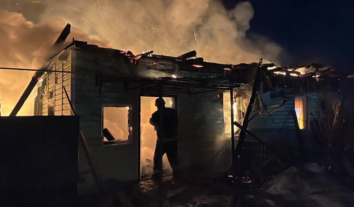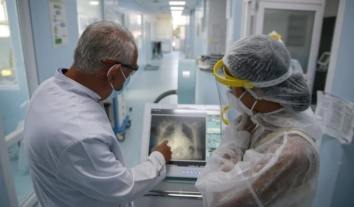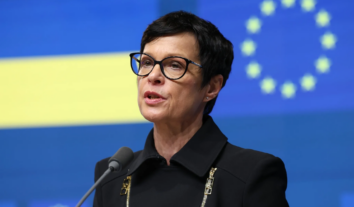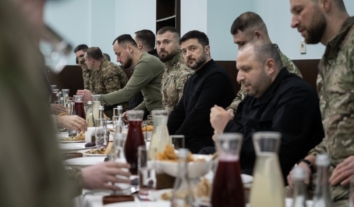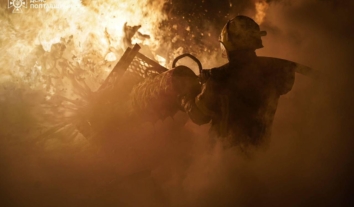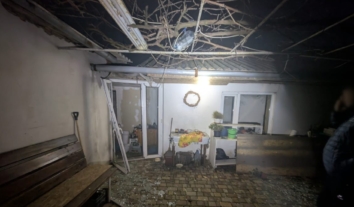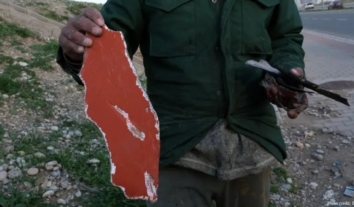Crimean human rights organization explained how Russians persecute Crimeans who stand against Russian military aggression
This week, the human rights organization Crimean Process published separate reports on how the Russian Federation (RF) applies Art. 20.3.3 of its administrative offense code to “public actions aimed at discrediting the Russian army” in the temporarily occupied Crimea.
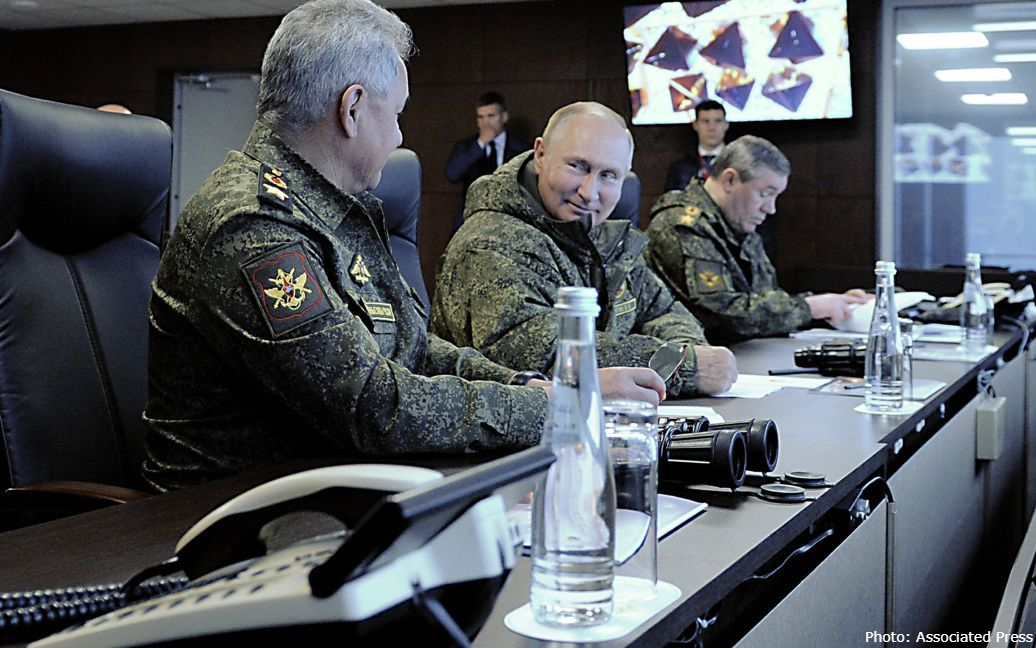 Russian Minister of Defense Sergei Shoigu and wanted by the International Criminal Court Vladimir Putin
Russian Minister of Defense Sergei Shoigu and wanted by the International Criminal Court Vladimir PutinCrimean Process has summarized the rulings of illegitimate “courts” in Crimea for two years. According to the experts of this NGO, the average number of persecutions was 20 protocols per month in the first month of the war. However, a significant rise in the number of persecutions was recorded in the second year, up to 33 persons on average each month.
Crimean “courts” heard about 642 cases over the period of 2 years. In 98%, the “court” declared the persons guilty of committing the offense. In ten cases, it stopped the persecution because of the expiry date or absence of evidence. In another two cases, the hearings were postponed to a date outside the time frame of the research.
As of April 22, 2024, the Mission of the President of Ukraine in the Autonomous Republic of Crimea recorded 780 cases under Art. 20.3.3 of the Russian administrative offense code in Crimea. Of these cases, 680 resulted in a ruling to impose an administrative penalty in the form of a fine, or were joined to another case under another article and a combined decision was made. In 24 cases, consideration of the materials is ongoing.
According to the results of permanent observation, two abnormal “courts” had more cases than other “courts: “A district court” in Simferopol which serves the illegitimate “counter-extremism center,” and “Armyansk city court,” that punishes people for violating Russian law content. They find this information on their mobile phones when they are inspected upon entering Crimea from the temporarily occupied Kherson region.
The most persecutions are recorded in the temporarily occupied cities of Sevastopol (74), Evpatoria (59) and Yalta (56).
The human rights lawyers of the Crimean Process analysed Art. 20.3.3 of the Russian Administrative Offence Code. They found many persecutions affect people who publish pro-Ukrainian posts on their social media pages. These cases make up 80% of all delivered court decisions. The second largest group (28%) is of those who orally expressed their opinions – 28%.
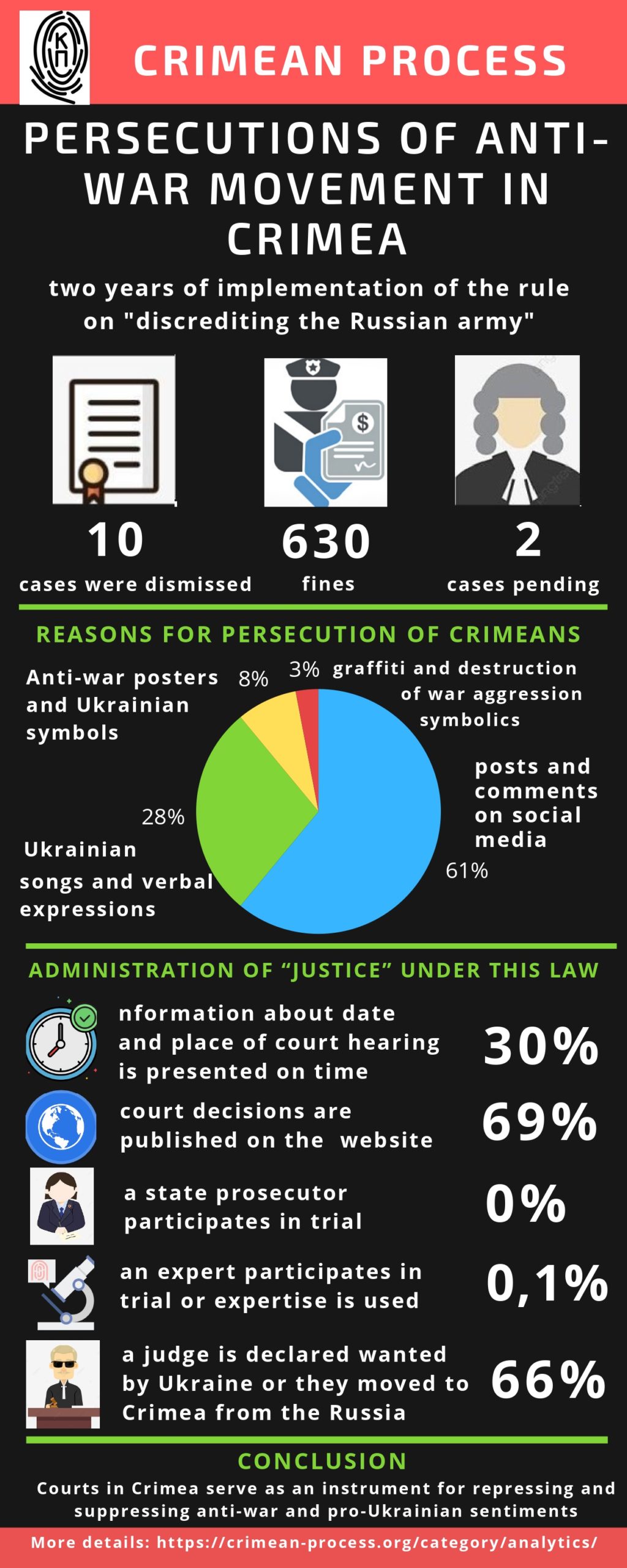
Moreover, human rights defenders have recorded several doubtful forms of “discrediting” the Russian army. These include using the phrase “I wish you a peaceful sky above your head,” or hanging out yellow and blue bed sheets, the colors of the Ukrainian flag.
“In some cases, the presence of discrediting or aiming the statements at the Russian army raise considerable doubt, however, the courts never appointed any linguistic expertise,” the research authors emphasize.
The Crimean Human Rights Group published a similar report. This NGO recorded the Ukrainian song “Good evening, we are from Ukraine” was deemed “discrediting” to the Russian armed forces. Two Crimeans were fined 40,000 rubles each for listening to it in a public place.
A worker at the tourist branch in Yalta was fined for listening to recordings of Ukrainian news channels about events in Crimea, wherein Russian troops were called occupiers.
A local resident was fined for refusing to greet his neighbour in the morning who had Z symbols on his backpack and expressed a negative attitude towards Russia’s war in Ukraine.
There was also an incident recorded where a Crimean resident was fined not only for expressing support for the Ukrainian Armed Forces, and derogatory phrases towards the Russian military on the street, but also for spitting on a badge with a Z-symbol that was pinned to his interlocutor’s clothes.
The Crimean Human Rights Group recorded fines to the Crimeans for:
- Slogans “No to war”, “No to war in Ukraine”, “Glory to Ukraine”, “Glory to the heroes”, “I am proud to be Ukrainian”, “Ukraine will win”;
- Posts on social media expressing disagreement with Russian aggression in Ukraine and, condemning Russian war crimes in Ukraine;
- Posts calling on Russians to sign public anti-war petitions to stop the war in Ukraine;
- Posts calling on Russians to seek truthful information about Russia’s aggressive war in Ukraine in the media and messengers;
- Announcements of fundraising for the Ukrainian Armed Forces;
- Videos in support of the Ukrainian Armed Forces with images of Ukrainian national symbols and Ukrainian military personnel;
- Posts and videos containing profanity towards the Russian occupiers;
- Statements that Russia has an authoritarian regime;
- Expressions of sympathy for a fallen Ukrainian soldier;
- Refusal to receive a summons to the Russian Armed Forces with the words “I will not serve a terrorist state”;
- Posts criticizing Putin’s policies;
- Videos containing profanity towards Putin;
- Congratulations on Ukrainian Independence Day and statements that Ukraine will win;
- Animation with images of Vladimir Putin, Russia’s Minister of Defense Sergei Shoigu, and the Head of the Chechen Republic Ramzan Kadyrov, ridiculing the actions of the Russians in Ukraine;
- Liking a video posted on the official Instagram page of the Ukrainian president condemning Russian war crimes;
- Reposting a New Year’s greeting from the President of Ukraine;
- Commenting on a YouTube video with the captions “Simferopol. Glory to Ukraine!”, “Simferopol welcomes! Simferopol is waiting!”.
Also, the researchers noticed the occupational “courts” did not publish every third court decision. For instance, information about the time and, place of the hearings was published with a significant delay in 70% of the cases, sometimes three weeks after the “court” heard the case.
Another Crimean human rights initiative Трибунал. Крымский эпизод assessed 630 court decisions and stated Crimeans have paid about 25 million rubles in fines in cases under this article.
Moreover, the Crimean Process highlights that in proceedings with such violations, more than half of the illegitimate “judges” are either wanted in Ukraine or already accused of high treason. Another 19% of them involved in persecutions were transferred to the peninsula from Russian regions and administer justice violating international humanitarian law norms.
The researchers concluded that in such conditions, independent and objective hearing of cases is not guaranteed in Crimean “courts”. The Crimean Process is convinced the application of article 20.3.3 of the Russian administrative offense code in the temporarily occupied territory is not directed at crime prevention but is preserved exclusively as a tool to oppress Ukrainian sentiment among Crimeans.
By way of background, Russian occupying authorities in Crimea have consistently suppressed freedom of expression, including for members of minority cultures and identities. According to the UN report “Ten years of occupation by the Russian Federation: Human rights in the Autonomous Republic of Crimea and the City of Sevastopol, Ukraine,” they have also severely curtailed freedom of religion for minority groups, particularly those opposing official narratives, such as the Mejlis.

